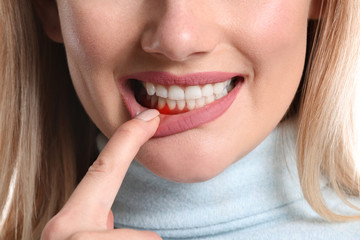
Dental implants are a highly successful treatment option, with a 98% success rate, making them a popular choice for replacing missing teeth. After the surgery, it’s important to avoid certain foods that might slow down healing. Eating the right foods after surgery is important for a smooth recovery. Keep reading for information on foods to avoid, some substitutes, and possible side effects of the dental implant placement procedure.
What to Expect
Dental implant surgery is usually safe, but you might have some side effects afterward. One common issue is pain for a few days after the procedure. Luckily, you can usually relieve this with over-the-counter pain medicine. Just make sure it’s Aspirin-free to reduce the chance of bleeding, as Aspirin can make bleeding worse.
If needed, your dentist might give you a stronger painkiller. Swelling around the incision site is normal after surgery and usually goes down by itself, but using ice can help reduce it. Serious problems are rare, but it’s important to get treatment quickly if they happen.
Infections at the incision site need prompt attention to stop them from spreading. Usually, antibiotics can clear up these infections. Sinus issues and nerve damage are possible but less likely side effects of implant surgery.
Foods to Avoid
Maintaining a proper diet following implant surgery is crucial to ensure a successful recovery. To support your healing process and avoid complications, it’s important to avoid certain foods during the initial stages of recovery. Here are some foods that you should steer clear of:
- Crunchy foods – This includes chips, nuts, popcorn, crackers, and hard candies that could get stuck in the incision site.
- Sticky or chewy foods – Avoiding these will help you prevent discomfort as well as the need for excessive chewing.
- Spicy foods – These can irritate the incision site.
- Alcohol – Drinking alcohol can delay healing.
Foods to Eat Instead
Following dental implant surgery, it’s advisable to consume soft, easy-to-chew foods to support your recovery and minimize discomfort. Here are some recommended options to consider incorporating into your diet:
- Soft, hot cereals – You can begin to eat foods like instant oatmeal or porridge a few days after surgery once your gums aren’t as sensitive.
- Warm, broth-based soups – These often contain tons of protein, which is good for your smile since it plays a crucial role in tissue repair and regeneration.
- Applesauce – This fruit puree is high in dietary fiber and vitamin C.
- Plain yogurt – This is full of vitamin D and protein, both of which contribute to your oral health.
- Mashed potatoes – Since they’re high in fiber, this is a great food to eat after implant surgery.
Dental implant surgery can greatly improve your life by giving you back a full smile. Eating the right foods is important for the success of your surgery. By choosing your diet carefully, you can help ensure your surgery goes well and enjoy all the benefits of having a complete smile.
About the Practice
Looking for a trustworthy dentist in Hingham? Meet Dr. Mohamed Hegazi and the caring team at Admired Smiles Dental Center. They’re dedicated to transforming smiles and enriching lives with personalized care just for you. With their emphasis on diagnosis, treatment, and prevention, they aim for the best results for you and your loved ones. Their mission is to build enduring relationships based on trust, ensuring ongoing care for years to come. To book an appointment or discover more about dental implants, reach out to Admired Smiles Dental Center at (781) 749-3030 or visit their website.
